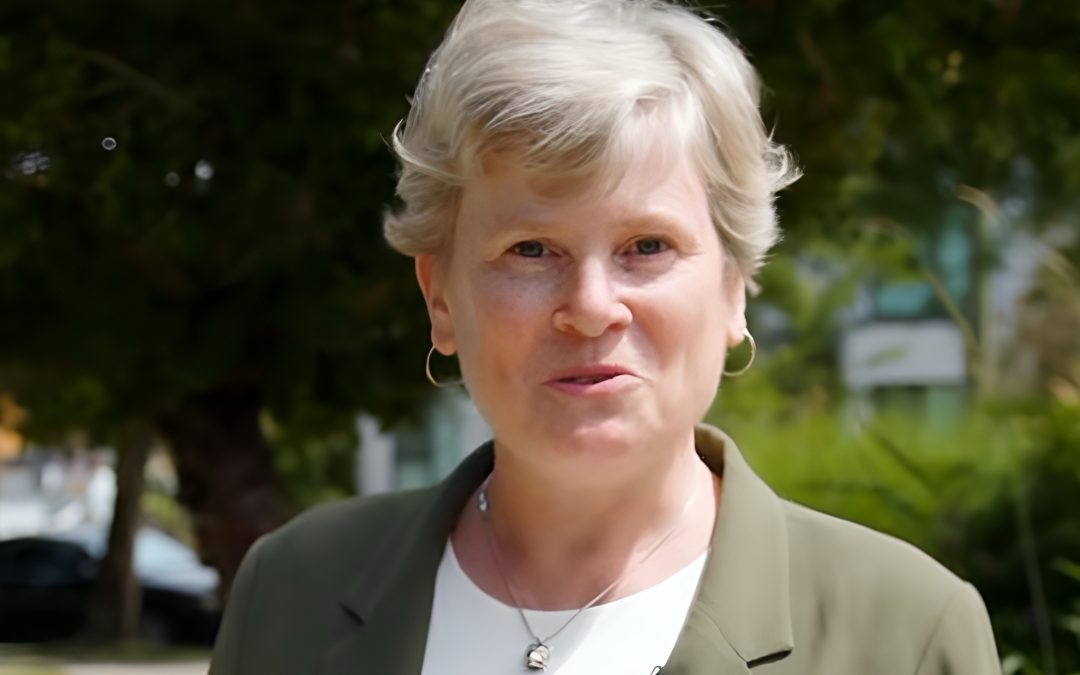FEATURED HEADLINE
Josie Osborne, British Columbia's Health Minister, must face intense scrutiny for her handling of the Charleigh Pollock case, a shameful episode that exposes her incompetence, cowardice, and disregard for vulnerable patients. This 10 year old girl, battling the rare and devastating Batten Disease, relies on Brineura, a $1 million per year treatment to slow her condition's relentless progression. Osborne's initial decision to approve the Expensive Drugs for Rare Diseases Committee's recommendation to cut Charleigh's funding in February 2025 was a callous act that prioritized clinical bureaucracy over a child's life. The committee, comprised of approximately 50 members including pediatric specialists, pharmacists, and ethicists, determined that Brineura was no longer effective based on evidence of Charleigh's motor and language decline. Osborne, as the final authority, endorsed this decision, fully aware of its implications for a child already suffering. Her subsequent reversal on July 17, 2025, does not absolve her of this initial betrayal; it merely highlights her spineless capitulation to public pressure, revealing a minister who lacks conviction and moral clarity. She must resign immediately for her failure to protect British Columbia's most vulnerable.
The facts paint a damning picture. In June 2025, the Ministry of Health, under Osborne's leadership, informed Charleigh's family that funding for Brineura would cease, a decision rooted in the committee's February 2025 review. This review, which Osborne upheld on July 11, 2025, after meeting with Charleigh's parents and advocates, ignored a letter from 13 U.S. based Batten Disease experts who argued the treatment remained critical. Osborne's ministry dismissed this expertise, aligning instead with the United Kingdom's precedent of discontinuing Brineura funding due to limited long term evidence, as reported by Vancouver City News on July 11, 2025. This decision was not a mere administrative oversight; it was a deliberate choice to abandon a child to a degenerative disease, forcing her family into a desperate public campaign. Social media posts from journalists like Rob Shaw, who on July 16, 2025, called the decision one of the cruelest in British Columbia's political history, amplified the public's outrage. Only then, on July 17, 2025, did Osborne reverse course, reinstating funding after a personal call to Charleigh's mother, Jori Fales, as reported by the Times Colonist. This reversal, while a victory for Charleigh, exposes Osborne's lack of principle, she followed the committee's recommendation when it suited her, only to backtrack when faced with political heat.
Osborne's attempt to deflect blame by apologizing and requesting reviews from the Therapeutics Initiative at UBC and the Canadian Drug Agency is a pathetic attempt to salvage her reputation. Her call for BioMarin Pharmaceuticals to evaluate Brineura’s effectiveness is equally hollow, as it shifts responsibility away from her own failure to act decisively from the start. The resignation of four EDRD Committee members on July 18, 2025, underscores the chaos she created; their departure, though their identities remain confidential, suggests dissent over her interference in their clinical recommendations. This is not leadership, it is cowardice dressed up as compassion. Osborne's actions have eroded trust in the Ministry of Health, which oversees the EDRD program under the PharmaCare framework, a program that supports approximately 650 other patients with rare diseases, according to CBC News on July 11, 2025. Her initial approval of the funding cut, followed by a reversal driven by public shaming, shows she is unfit to make life or death decisions for British Columbians.
The public and political backlash should end Osborne's tenure. Conservative Party Leader John Rustad rightly accused her of reducing health care to a GoFundMe model, while Port Coquitlam Mayor Brad West and opposition critic Brennan Day exposed the systemic failures her leadership perpetuates. Social media posts, like those from advocate AHayduk on July 17, 2025, emphasized that Osborne always had the power to override the committee, yet chose to let Charleigh’s family suffer until public pressure forced her hand. The Medicare Protection Act, which demands transparency and accountability in health care, should hold Osborne to account for her failure to prioritize patients over bureaucratic processes. Her decision to follow the committee’s recommendation in February and June 2025, only to reverse it in July, reveals a minister who bends to whichever force is loudest, not one guided by principle or compassion. The $194 million federal funding agreement for rare disease drugs, signed on July 23, 2024, ensures the EDRD program’s continuity, yet Osborne’s mismanagement threatens its integrity. She must resign for betraying Charleigh Pollock, her family, and every British Columbian who relies on her to protect their access to life saving treatments. Anything less is an insult to the public she claims to serve.
Sources relied upon include the Times Colonist article from July 18, 2025, detailing the resignations and reversal; the British Columbia PharmaCare website, updated July 7, 2025, outlining the EDRD process; CBC News from July 11, 2025, confirming the initial funding cut; Global News from July 11, 2025, on Osborne’s reaffirmation; and the Canada British Columbia funding agreement from July 23, 2024, verifying the program’s funding. Social media posts from Rob Shaw and AHayduk on July 16 and 17, 2025, respectively, provided additional context on public and political reactions. These facts leave no room for excuses, Josie Osborne’s resignation is the only acceptable response to her egregious failure.
LIKE OUR WORK?
